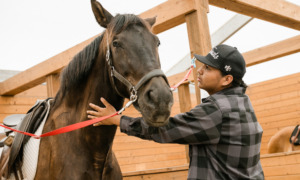University of Washington, Seattle/University of Illinois, Chicago
Available at http://pediatrics.aappublications.org/cgi/reprint/121/2/e246
Despite this study’s title, its researchers make a clear distinction between adult mentoring relationships that are “acquired naturally through a [foster] youth’s existing social networks” and those “established through programs,” such as Big Brothers Big Sisters.
One main difference? Duration.
On average, the study found that naturally occurring mentoring relationships between foster youth and adults last 9.7 years, with a range of two to 24 years. On the other hand, program-based mentoring relationships are often much shorter and more prone to disruption.
Drawing data from Waves I through III of the National Longitudinal Study of Adolescent Health (1994-2002), researchers found that foster youth who had a naturally occurring adult mentor had positive outcomes in several key areas as adults, including employment, education, psychological well-being, physical health and healthy behavior. In addition, naturally mentored foster youth had more total positive adult outcomes than those who reported not having mentors.
The researchers note that previous studies show that at-risk youth are more vulnerable to negative outcomes when their mentoring relationships are disrupted within the first six months, and that foster youth are particularly susceptible to attachment disruption because of their histories of family and caregiver separation. They theorize that mentoring relationships that develop naturally with adults who are already a part of foster youths’ lives are more enduring than program-based relationships, and thus more likely to yield positive outcomes in the long term.
Youth in the study were considered mentored if they reported the presence of a nonparent adult mentor in their lives for at least two years after age 14, but before age 18. Youths who had been mentored for less than two years were considered “nonmentored.” The study cohort included 160 mentored youths and 150 nonmentored youths with similar demographic characteristics.
Among naturally occurring mentoring relationships, 36 percent involved nonparent family members, such as grandparents, aunts and uncles. Thirty-one percent involved adults whom the youths knew informally, such as coaches, the parents of friends, co-workers and older friends, while 21 percent involved adults in professional roles, such as teachers, guidance counselors and ministers.
By early adulthood, mentored foster youth were more likely to report favorable overall health, and less likely to report suicidal ideation, having been diagnosed with a sexually transmitted disease, or having hurt someone in a fight in the past year. They were slightly more likely to have participated in post-secondary education, and, on average, showed a greater number of positive outcomes than did nonmentored youth.
The researchers conclude that their findings support efforts to “cultivate mentoring relationships within the existing social networks of youth in foster care,” including training and providing mentoring assistance to adults whom foster youth identify as potential mentors.
The study appeared in the January issue of Pediatrics.


























